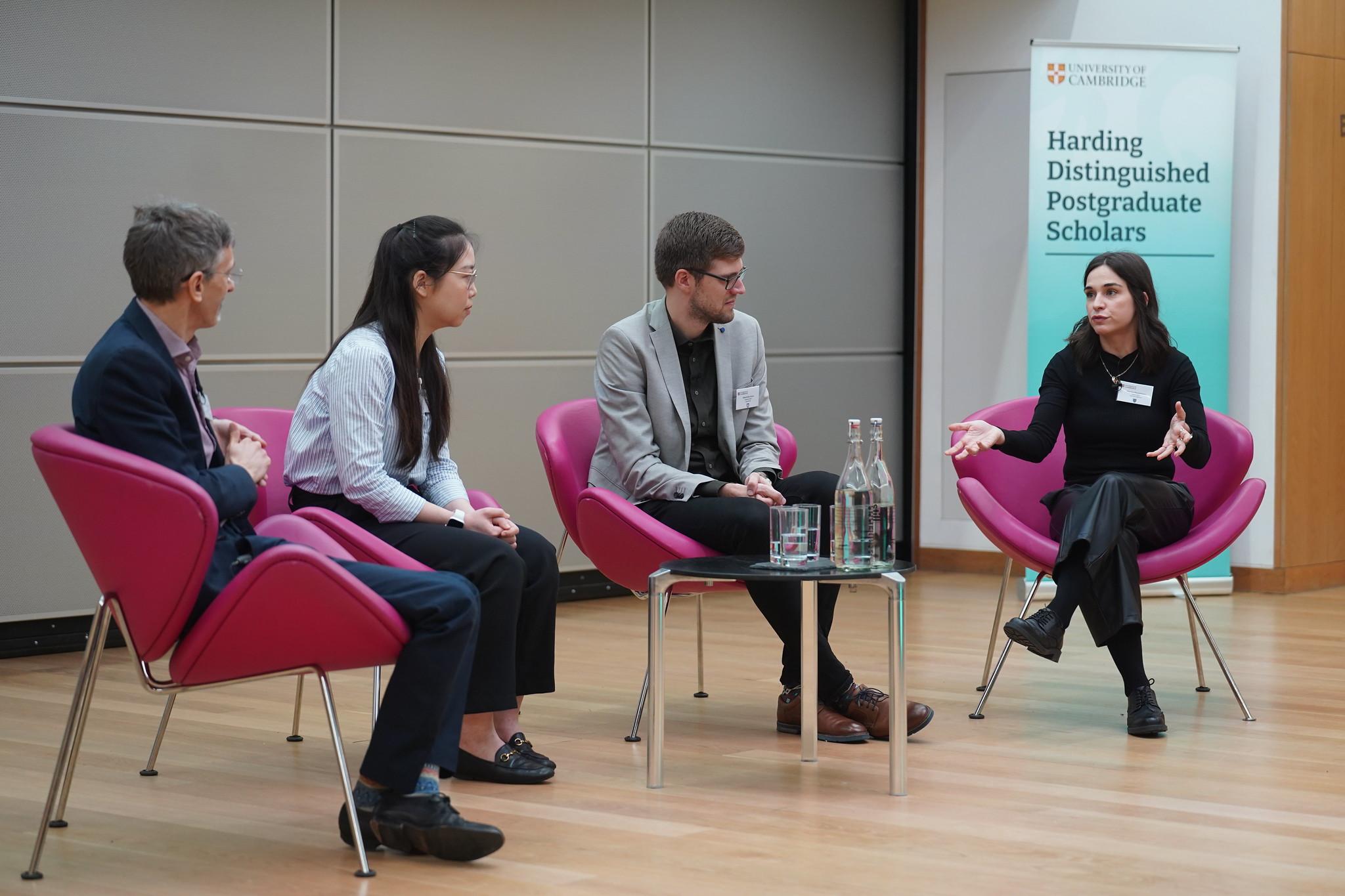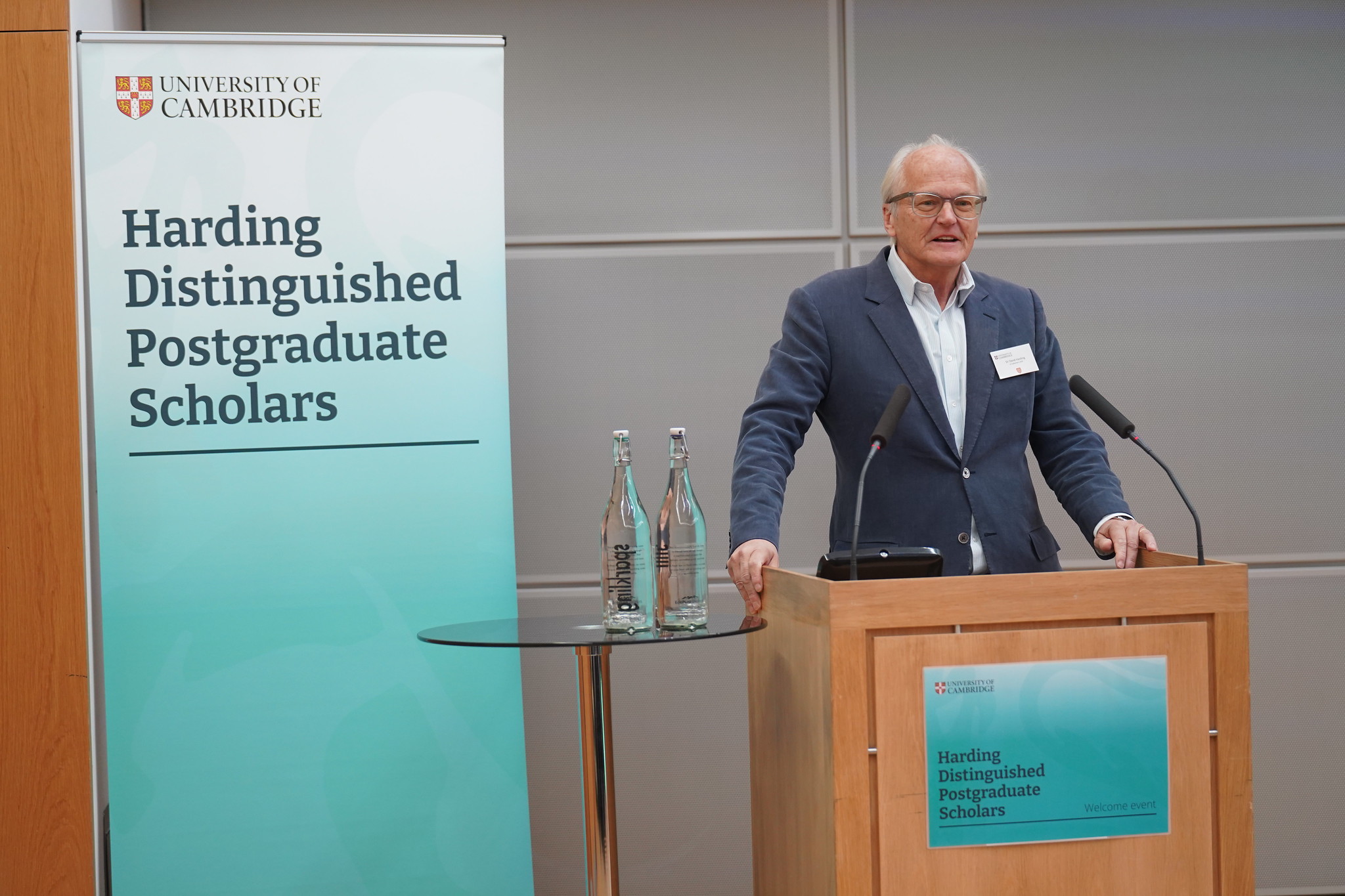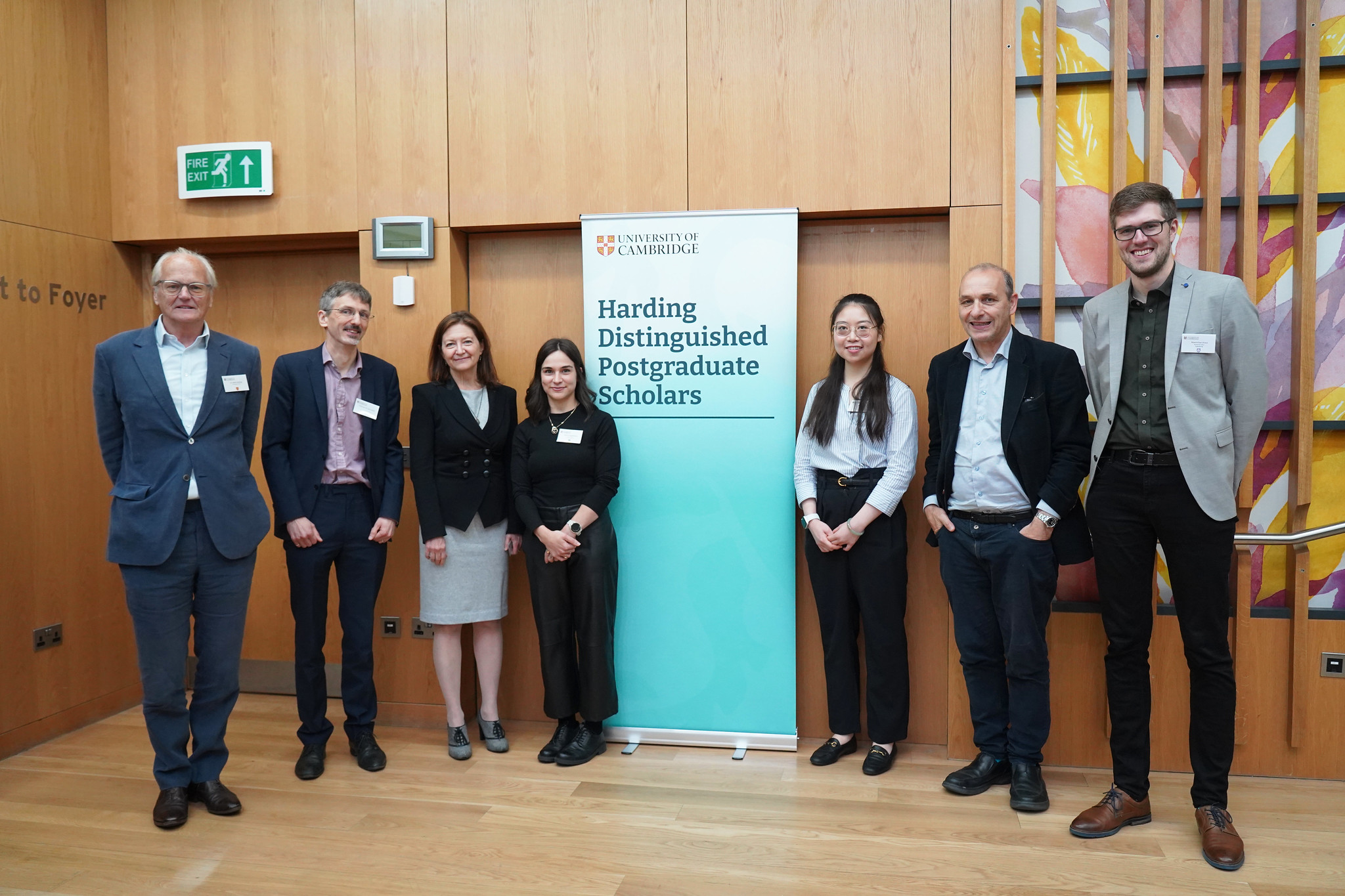
Submitted by Katherine Laidlaw on Tue, 12/11/2024 - 16:58
From the Tibetan Plateau to parasitic worms to computational neutron transport methods, the full array of the interdisciplinary nature of the Harding Distinguished Postgraduate Scholars Programme was on full show at the 2024 Welcome Event.
Sir David Harding was among the special guests at the annual reception at St Catharine’s College which also included Vice-Chancellor Professor Deborah Prentice, Master of St Catharine’s Sir John Benger, and James Holmes, Executive Director of the David and Claudia Harding Foundation.
One of the key features of the Programme is the breadth of study of the scholars, and a panel discussion, chaired by Professor Sir John Aston, the Pro Vice-Chancellor for Research at the University of Cambridge and Harding Professor of Statistics in Public Life, explained how the students can focus their research in ways that would otherwise be difficult.
“The Welcome Event was excellent in that it showcased the wide variety of areas that people within the Programme work on," said Sir John.
“Interdisciplinarity is where the most exciting research often takes place. Showing that this is not only possible but encouraged will likely help new students really broaden their horizons, making their own research even more impressive.
“All three presentations were really impressive. They were very diverse, which is really important, yet they showcased how different disciplines coming together yield fascinating research.
“They were really accessible and generated some excellent discussion. I also think they showed the best aspects of our PhD students in Cambridge which was good for everyone to see.”
The keynote speakers on the panel were Maximilian Kraus, Marina Papaiakovou and Doudou Cao.
Maximilian is part of the 2022 cohort of Harding Scholars and is working on a computational method for neutron transport simulations at Homerton College. Computational neutron transport methods are used in nuclear engineering to simulate processes that occur in nuclear reactors, and Maximilian is trying to extend the existing, so-called Random Ray Method, such that it can simulate the transient (time-dependent) behaviour of neutrons (as opposed to steady-state simulations).
“I enjoyed presenting my research work in front of the incoming Harding Distinguished Postgraduate Scholars Programme cohort, Sir David and the VC,” said Maximilian.
“It was a great pleasure to meet Sir David in person and to talk to him and James Holmes. I’m also happy about the feedback I received on my work, and grateful for the opportunity to clarify common misconceptions about the safety of nuclear energy.”
Marina, who is in the 2021 cohort, is researching in the field of Veterinary Medicine at Christ’s College.
“In my PhD research, I aim to understand the diversity of parasites to validate existing diagnostic tools and improve how we detect worm infections, affecting a quarter of the world's population and causing a significant disease burden. So far, my work highlights the need to survey humans and the environment (e.g., livestock) to understand parasite transmission better,” she explained.
Marina relished the chance to highlight her work to an audience of more than 60 people.
“It was fascinating to have many people asking further questions after the presentations,” she said.
“It was one of the few such events that I left the room feeling enriched and inspired to be involved more with the Harding community and colleagues.”
The work of Maximilian, Marina and more broadly the other Harding scholars present in the room caught the attention of Doudou.
“Sharing my work was both exciting and rewarding, and I was truly inspired by the thoughtful insights that the other two student speakers shared from their fields – physics and worms!” she said.
“The audience’s questions and the round-table discussion also gave me fresh perspectives, not only on my research but also on my overall experience at Cambridge. It reminded me of how fortunate I am to be part of such a diverse and supportive Programme.”
Doudou, a member of the 2021 cohort at St Catharine's College, presented her work which is focused on human growth, development and skeletal adaptations in high-altitude environments, particularly among ancient Tibetan populations. By analysing human skeletal remains from archaeological sites across the Tibetan Plateau, she explores how extreme conditions such as hypoxia and cold influenced adaptation and survival strategies over time.
She added: “The Welcome Event was a great experience. It was great to meet new fellow scholars and feel a strong sense of community.
“I appreciated the opportunity to connect with everyone – especially seeing Sir David in person.”
Article by: Mark Taylor, Donor Communications Associate, University of Cambridge Development and Alumni Relations
Images by: Chris Loades


